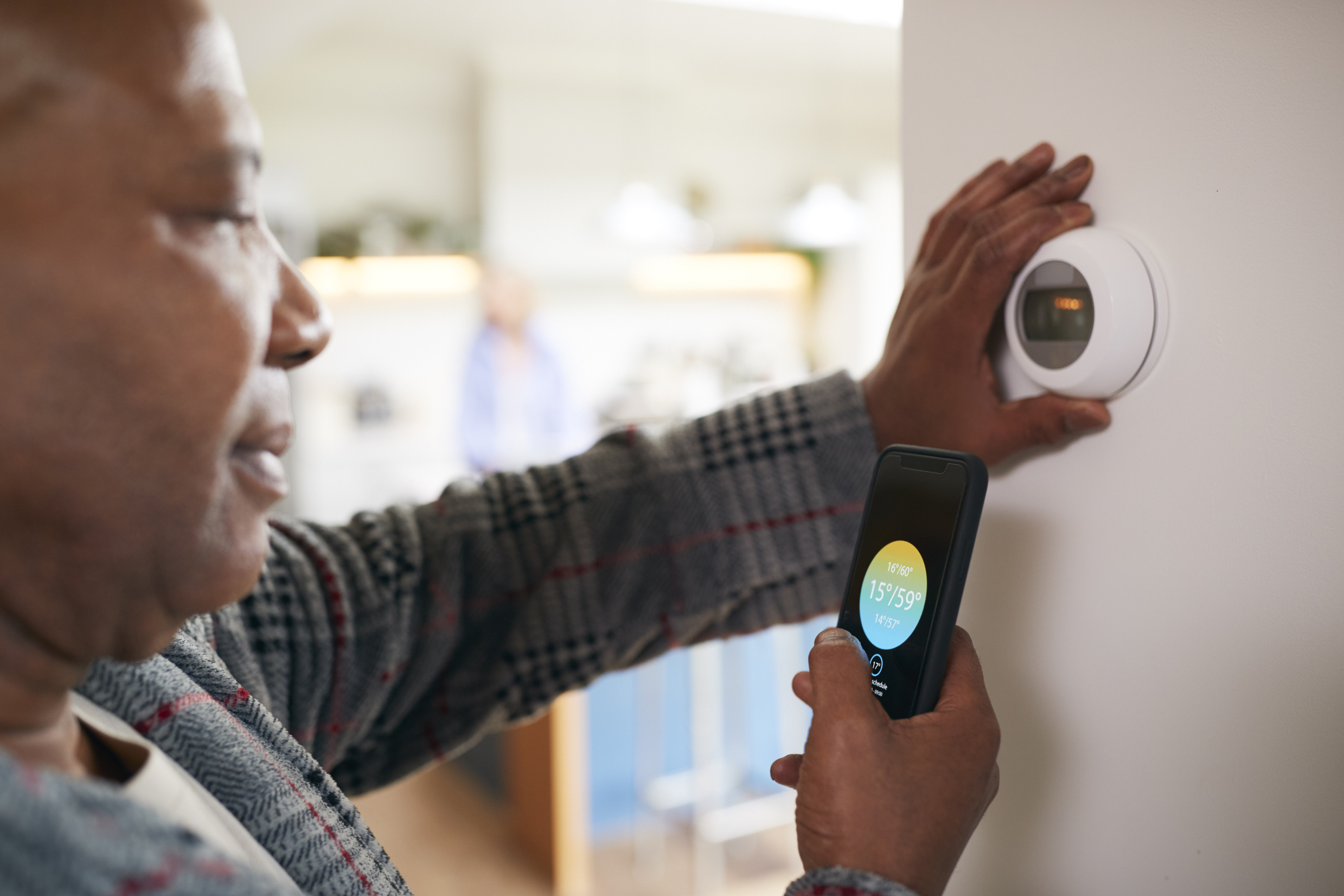Assistive technology has made it easier for the elderly and disabled to stay safe and healthy at home. Senior citizens who are uncomfortable with technology may need family or caregiver assistance to set up these assistive devices. Once they are in place, their automated functions can assist with daily tasks or keep caregivers close at hand. Here is an overview of the remote monitors, smart home devices and accessibility aids that can make life much easier and safer.
Remote Patient Monitoring
Fall detectors and home medical alert devices provide a safety net for elderly patients who live alone. A Personal Emergency Response System is a pendant or wristband the user can activate in a sudden emergency by pressing a button or pulling a cord. Some medical alert devices automatically detect falls and send an alarm or open a two-way conversation with a monitoring center or caregiver.
Some wearable healthcare technology keeps track of the vital signs that affect chronic conditions. People with hypertension or heart disease can monitor blood pressure and pulse, while those with chronic obstructive pulmonary disease (COPD) can watch their oxygen saturation levels. Some sensors can alert a caregiver to abnormal readings or transmit data directly to the patient’s provider, so the patient does not need to keep a written record. Individuals with dementia who are prone to wandering can use wearable technology like the Apple AirTag to provide location updates.
Smart Home Devices
Voice-activated platforms like Amazon Alexa, Google Assistant and Apple’s Siri use artificial intelligence to transform how older adults use technology at home. Smart home devices integrate with these wireless and Wi-Fi enabled technologies to control connected devices throughout the home. These voice-activated AI platforms also help visually impaired individuals add items to a shopping list if they have problems seeing their calendars or writing things down.
Smart thermostats, switches and locks can be controlled remotely with smartphone or voice commands. Someone who cannot walk around their house freely can turn off the lights, arm a security system or adjust heating and air conditioning temperatures.
Programmable automatic pill dispensers can simplify medication administration. Older adults or their caregivers fill the dispensers and program them to deliver the right medication at the right time. Some medication management systems use a mobile app to notify users when it is time to take their medication or order refills. Assistive devices also can call a caregiver for help to take drugs correctly.
Vision and Hearing Adaptations
Many e-readers and tablet computers can be set to show large type for easy reading. Accessibility settings such as voice assistant, dark screen and high-contrast fonts or icons make digital reading easier for the visually impaired. Screen readers have talkback settings to tell individuals with low vision what is on the screen. Speak-to-text features allow visually impaired persons to dictate text messages and other communications.
Closed captioning helps adults who are hard of hearing capture the dialogue of their favorite programs. A remote control with a voice command function can change settings without tedious searching or typing.
Medicare has a hearing-aid benefit for individuals diagnosed with hearing loss, and low-cost over-the-counter hearing aids can benefit individuals with mild hearing loss. Bluetooth-enabled devices let users stream phone calls and TV audio to their hearing aids; they can also adjust their hearing aids for music, wind or background noise using their mobile phone.
Amplified telephones turn up the volume of incoming calls, making it easier to hear and understand phone conversations with sounds around them. Assistive technology can also vibrate or flash a light to alert them to the chime of doorbells, alarm clocks or smoke alarms.
Insurance may cover the cost of assistive devices for specific health conditions or help members to set up assistive devices. Hearing and vision specialists, occupational therapists and other providers can suggest health technology for their patients. More help is on hand through the community’s Area Agency on Aging or Aging and Disability Resource Center.
Y0149_0008706_C




